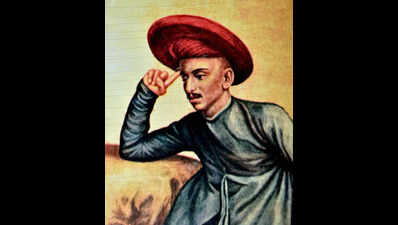Surat: Gujarat as a state came into existence in 1960, but the poem that defined the Gujarati spirit and its regions was written nearly 87 years earlier. Narmadashankar Dave , popularly known as Narmad , wrote the song " Jay Jay Garvi Gujarat " in 1873. Even 152 years later, it remains popular as the state song of Gujarat, both here and abroad.
Many songs were written in honour of the state and its people, but none could replace it. The popular phrase ‘Garvi Gujarat — the Pride of Gujarat' became well-known through this song. Gujarati literature experts say Narmad was a creator and litterateur who could think a century ahead.

The song also advocates education for future generations. "It is the first such patriotic poem written for Gujarat in Gujarati. Narmad inspired us through this poem about patriotism; he inspired us to take pride in our motherland," said Satish Vyas, former professor and head of the Gujarati department at Gujarat University.
"Not only does he take pride in the people of Gujarat, but he also tells people to educate their next generation for development and wealth. ‘Garvi Gujarat' was popularized by Narmad through this poem," Vyas told TOI. Literary scholars take inspiration from "Jay Jay Garvi Gujarat " as an example of how Narmad wrote poetry for a region that became a state later.
"When Narmad wrote this, the state did not exist; he wrote it 87 years earlier. Several small states existed within Gujarat then, but he thought of a united Gujarat. He mentioned all the important parts of the state in the poem," said Ravindra Parekh, a writer and poet.
"I consider it the state song of Gujarat. Many songs have been written, but none became as popular as this," added Parekh. "For his passion in writing, he was called Veer (brave) Narmad.
In this poem, we can see the same enthusiasm and love for the state and its people. He was a reformist, and his temperament was such that he could write about the glory of the state one and a half centuries ago," said Sandhya Bhatt, associate professor at the Arts and Commerce College in Bardoli..
















